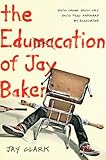I’m wearing quick-dry khaki capris, a crispy Windbreaker, and hiking shoes that make my feet feel like Clydesdale hooves. They’re brand-new. Like my too-short haircut and my purple suitcase, along with everything in it.

Wanderlove by Kirsten Hubbard
My rating: 5 of 5 stars
Synopsis:
After graduation, Bria Sandoval was supposed to go to Europe with her boyfriend before they started Art School together. Instead, they broke up shortly after admissions notices came out. Her two best friends were going to fill in as travel companions, but then they backed out. Getting handed a simple pamphlet seems like a sign, and its question, “Are you a Global Vagabond?” inspires her. She longs to be like the beautiful people posing gracefully atop a Mayan ruin in the pamphlet photograph, but when she arrives in Guatemala, she immediately feels out of place in her tour group full of middle-aged vacationers. An unexpected invitation to join experienced backpacker Rowan and his sister Starling offers Bria the chance to finally break the rules. Getting even more lost might be just what Bria needs to find herself again.
Review:
After reading Hubbard’s debut, Like Mandarin, as part of the Debut Author Challenge last year, I said, “I’ll definitely be keeping an eye out for her next book,” and I am so glad I did. Wanderlove is a gorgeous read, lush with detail and Hubbard’s graceful style.
With the first-person narration, Hubbard walks a delicate line. Bria has to reveal things about herself before truly recognizing them. The magic lies in the way her introspection feels natural; she is a lonely young woman in a place where she literally doesn’t speak the language. She has to talk things out with herself, and by extension, the reader. Bria’s metaphorical distance from her friends and parents and her figurative abandoned map of her future are made manifest as she travels thousands of miles away from home with barely a glance at the itinerary.
When the reader meets Bria, she is lost and confused. Art – drawing, in particular – was her constant, her comfort. “I used to be an artist,” she thinks on the plane from L.A.X., where she can’t even bring herself to draw in the sketchbook she opens. Her self-image has crumbled. When the girl in the seat next to her asks about her travel plans, Bria lies, wanting to sound cooler and worldlier than she is. She is trying so hard to become a new person, and it all comes crashing down by the last line of the first chapter: “So much for reinvention.”
Hubbard has a gift for representing sensory details, especially the visual element, in her prose. Bria’s artist view of the world leads her to pick out telling details. Her first glance at her Global Vagabonds tour group consists of “mustaches, baseball caps, doughy calves marbled with varicose veins.” It is not a flattering depiction, by any means, but it reveals more about Bria than it does about the tourists. Later, Bria describes an incident with Marcy, the tour director: “While the rest of my tour group browsed market stalls, I bought a chicken tamale from a street vendor. Before I could unwrap it from its banana leaf, Marcy velociraptored up behind me and snatched it from my hand.” The use of “velociraptor” as a verb is just perfect, a striking image that captures the feeling of that moment. When asked if she has ever been in love, Bria’s memory of her now-ex-boyfriend “bubble up, like acid reflux.” That phrase captures the pain she feels, the feelings she insists on hiding: “I force them down with a shrug.”
Bria grows and changes at a reasonable pace over the course of the novel, while secondary characters are simultaneously developed. Rowan, the handsome backpacker boy with the shadowy past and seemingly too-good-to-be-true Starling are no mere foils for the narrator. They are complicated individuals in their own right, and closing the novel feels all too much like losing what might have been good friends.
Just as the pull of “wanderlove” is more than the “itchy feet” of wanderlust, Wanderlove is more than just a road trip story. It is a richly detailed journey both within and without, ultimately bursting with an inspiring love for life well-lived. Whether tucked into a backpack to read on bumpy backroads buses or kept and enjoyed on a comfortable couch, this is a companion to be cherished.
On shelves March 13, 2012.
Final Word:
A richly detailed and beautifully rendered journey across Central America and within the heart of a girl who needs to get lost before she can find herself. Caution: may inspire re-examination of your own map of the future.
Source:
e-ARC via NetGalley, provided by the publisher by request
View all my reviews









